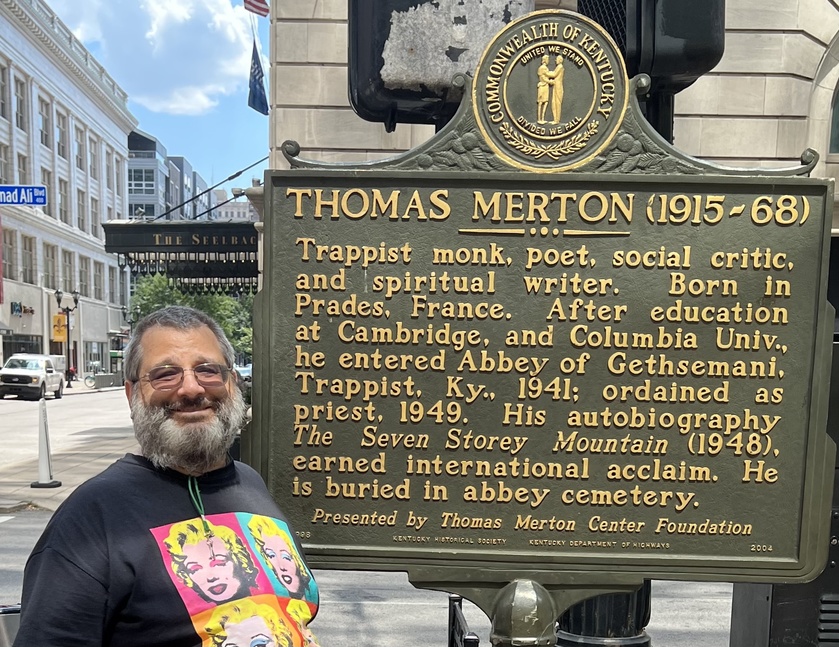In a couple weeks, Dr. Tim McGrew will be joining me to discuss Hume's argument against miracles. What questions do you have for Dr. McGrew on this subject?
I’m visiting Gethesamani Monastery outside of Louisville, Kentucky. It’s been a powerful experience. I will post some photos of the monastery, but I want to include this story.
In the book, “Conjectures of a Guilty Bystander,” Merton writes about the experience of a revelation that came to him on a trip he made to Louisville. There is plaque that has been put up to honor his here and experience:
“In Louisville, at the corner of Fourth and Walnut, in the center of the shopping district, I was suddenly overwhelmed with the realization that I loved all these people, that they were mine and I theirs, that we could not be alien to one another even though we were total strangers. It was like waking from a dream of separateness, of spurious self-isolation in a special world. . . .
This sense of liberation from an illusory difference was such a relief and such a joy to me that I almost laughed out loud. . . . I have the immense joy of being man, a member of a race in which God Himself became...
In the book I am writing, I have a chapter titled "Human Freedom." It's basically my best attempt at explaining free will. My theory is dependent on a few things that are too complicated to explain in this post. Anyway, the second to last section of this chapter is called "Implications." In that section, I give a logical argument. I'm wondering what Open Theists think of this or how they would refute it. This is it:
1. God chose to create all information.
2. Persons are a subset of information God created.
3. The information persons perceive is a subset of the information God chose to create.
4. Persons make choices based on the information they have.
5. A person's choices are a subset of information.
C. Therefore, a person's choices are a subset of what God chooses.















